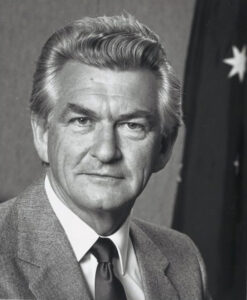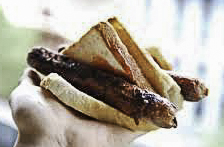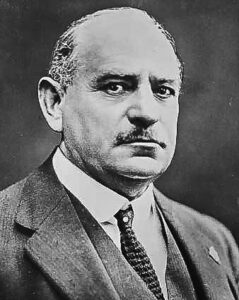Hey wait a minute. Sure, most people didn’t predict the result of the election. I thought we had 1972, although I had reservations about Shorten and his lack of charisma and the fact that 1972 did not yield the landslide that Whitlam had hoped for given how ghastly McMahon was.
Plainly Morrison was underestimated – the child actor with the perpetual grin prevailed … sort of.
But hey again, wait a minute. The language is going a bit over the top: “crushing victory”, “blood bath”, “horror night”. Hardly. What has happened is the media Kommentariat have got it wrong – to a degree.
Having said that, even before the election, Shorten, although losing a seat in South Australia in the redistribution was gifted another seat in the ACT and three in Victoria– one new and two previously held Liberal Party seats. In other words, Shorten started with a three-seat advantage.
Unlike Whitlam who won five seats in his home State, Shorten lost, if you don’t count the new seat of Fraser and the two notionally Labor seats as gains, one in Victoria. My pre-election line: “And tellingly Shorten comes from Victoria” begged a reply. I however did not expect “It won’t matter. He’s a loser.”
And the ironic final blow was that Shorten has lost Bass, the seat where the Beaconsfield mine is located and where he started constructing his national profile in 2006.
Morrison has eked out a victory, with Dr Faust very much clothed as a banana bender or cane toad – whichever description takes your fancy when describing our Northern State. He now has 24 members from Queensland (25 if one counts Bob Katter) in the House of Representatives with their de facto leader Barnaby Joyce just across the border.
Morrison is probably relieved that he has lost Abbott, because he does not have to find a place in the ministry and the Falangist right have lost their parliamentary leader.
Morrison should however be mindful that all three of the latest Coalition Prime Ministers have lost their seats, one by resignation and two at elections. Not a good precedent.
One significant gain is that Arthur Sinodinos has regained his health in his battle with cancer. How long he is in remission will be critical for Morrison. His exchanges with Penny Wong were exquisite on election night. Sometime one sees elegance in politics and how two people with differing views can accommodate the other.
Morrison may have heard his Brisbane colleague Dutton say, “This is the sweetest victory of them all”, repeating the quintessential Keating paean to hubris. As Keating found out three years later, Nemesis is the enemy of hubris. However, Queenslanders are a distinct breed. Having worked and travelled widely in Queensland, I recognise that it is useful to have a friend or two there, especially if these friends are close to the land. They give one a jolt of reality, and yet if I were Morrison I would prefer those jolts to be spaced and constructive.
The Victorians put away the cricket bats that I thought they would produce, and have given the Coalition the benefit of the doubt. However, there were big swings in some of the Victorian electorates and Mr Frydenberg will be acutely aware that he has a restless constituency, with cricket bats still at the ready.
And listening to Barnaby Joyce post-election where he seemed to be under some influence – perhaps alcohol – then the next years are not going to be pleasant. Likewise for Queenslanders, who have been engulfed in extreme weather changes and with a decaying asset in the Great Barrier Reef are hankering for more jobs. To them Adani spells Employment. Again we shall see.
Quilpie
I love going to the Queensland Outback. It reflects the Australia of my childhood.
One week a couple of years ago, we stayed in Quilpie in a small motel at the end of town, overlooking the railway track. Fresh water was limited in the town and so we bathed in the motel shower – hot bore water with a distinct sulphurous smell – in other words dilute sulphuric acid. Breakfast was as I remember in the classic fried eggs and bacon on white bread toast. Could have added sausages.
In the evening we sat around having a beer or two with the fettlers whose job was to maintain the railway out to Quilpie and who were staying at the same motel as we were. Mind you, they said, there was only one cattle train a year between Charleville and Quilpie, but the line had to be maintained. An empty freight train comes out from Toowoomba once year to pick up stock and then generally goes back empty, just so the Queensland Government auditor presumably can be informed that the line is still in use.
And yet here is a decaying railway line passing through one of the major black opal mining areas in the country. There is a shop with the most exquisite black opals. Beyond – at Eromanga – there is dinosaur country with a fully-fledged palaeontology setup. In this area, as in Winton to the north, there is a trove of dinosaur and megafauna skeletons. The accommodation here is first class, and the shower water is drinkable.

One only has to look at the media to see how popular tourist rail journeys have become worldwide, and that journey out to Quilpie from Toowoomba is far from boring. After all, how many places in Australia are a refuge for bilbies, as is the Charleville railway station. Tourism Queensland: good for jobs; good for the environment; and after you have renovated it, the Great Western Railway would be a great attraction, the basic infrastructure is there – Michael Portillo might even be induced to ride it.
Pity about the railway line from Charleville to Cunnamulla. Just south of Cunnamulla it was blown up in one of the biggest explosions ever in Australia in 2015 when a truck carrying ammonium nitrate exploded on the Mitchell Highway. No-one was killed , but the explosion has left an impressive hole – as if a meteorite had hit there.
However, the problem is that Queensland politicians only seem to think of mining and thus predictably not much happens to this rail line beyond Chinchilla, predictably a coal mining area.
But Queensland is not just coal. It is so much more!
As Miss Bingle may have called out: “Why the bloody hell don’t you realise it?” (With appropriate acknowledgement of the Prime Minister when he ran the Tourist Commission.)
Dental Health
The re-election of the Coalition will mean that the Dental Health of the nation will hardly rate. The Prime Minister said it was a State matter. It is not. It is a Constitutional responsibility: *51(xxiiiA) The provision of maternity allowances, widows’ pensions, child endowment, unemployment, pharmaceutical, sickness and hospital benefits, medical and dental services (but not so as to authorize any form of civil conscription), benefits to students and family allowances. (My underlining)
I always remember in the generation before me that in the working classes when a woman became engaged to be married there was a strong likelihood of her having all her teeth removed, if they had not all rotted away already.
The problem in pre-antibiotic days, the mouth was a pool in which the teeth harboured nasty germs and hence was the fountain for systemic disease. If it were not teeth it was tonsils. Removal of both followed. And even further back, in the generation before, diphtheria lurked.
This is no longer the case so long as dental hygiene is maintained and there is fluoride in the water.

My premise is that fluoride should be added to every town’s water except where there is already enough naturally occurring fluoride in the water supply, such as at Quilpie in western Queensland. Another problem of course is that most bottled water does not contain fluoride. It should be mandatory, but as with the dairy industry products to Asia reported elsewhere, science bends to the voodoo.
In fact there are 48 councils in Queensland where there is no fluoridation of the water supply i.e. 68 per cent of the Councils representing 800,000 people. Councils in the more populous regions are fluoridated. So with Queensland politicians in the ascendency, water fluoridation is not likely to happen unless there is a will to do so.
As I have foreshadowed before – and as I have done for years – I shall continue to pursue the need for a national dental scheme, drawing from the experience of Medicare, remembering that Medicare was once strongly opposed by the medical profession, the Coalition and others, even Queenslanders.
The Forgotten Warrior
Mention of Medicare reminds me of someone else. In all the posthumous idolatry of Bob Hawke, we have forgotten probably one of the real statesmen – that rare person in politics who was courteous, intelligent and who probably unleashed Paul Keating onto the wider stage. He was the policeman from the seat of Oxley. He is a Queenslander and his name is Bill Hayden.
When all the plaudits are being handed out to Bob Hawke about Medicare, the real architect was Bill Hayden with the introduction of Medibank, a decade earlier. He resurrected the Australian Labor Party as successfully as the right of the NSW wing of the Party buried him, and of course as they say, the rest is history.
Apart from a reference to another Queenslander, the drover’s dog being able to win the election, Hayden did not carry on like that later Queensland incumbent who was rejected by his Party. Hayden continued his career as Minister and later Governor-General.
He undoubtedly would have pursued the reforms that Hawke instituted, but he would have renegotiated a foreign policy, which would have made us less of a United States satrap. But then of course we shall never know the validity of that comment. Further, I doubt whether Hawke would have behaved as Hayden did if, instead of winning, he had been defeated in his 1983 quest to be leader of the ALP.
Bill Hayden lives on. He is a great Australian.
Twirling Tea Leaves – A Tempest in my Teacup

I am a bit worried about all this fuss involving a gentle giant rugby union player called Israel Folau.
He posts this notice: “drunks, homosexuals, adulterers, liars, fornicators, thieves, atheists, idolators – Hell awaits you”.
Now do we presume that Hell is currently empty of such diversity? If not, it could just as well be a description of the population of the Eastern suburbs of Sydney – or for that matter anywhere else in Australia where there is a heterogeneous population of people.
-
- Drunks – we do not seem to have a problem societally there.
- Adulterers – we have no-fault divorce
- Liars – most politicians led by Trump
- Fornicators – see Adulterers-in-training
- Thieves – the banking Royal Commission disclosed how acceptable that is – presumably Hell is also in the Cayman Islands.
- Atheists – doesn’t matter, they don’t believe in Hell.
- Idolaters – my objection is stated below.
I do not subscribe to the Dante interpretation of Hell.
It does not interfere in my belief that there is a God that I do not see demons with tails and carrying pitchforks as potential eternal companions. I happen to believe very much in the Trinity and am comfortable with the Anglican High Church interpretation.
So am I an idolater “awaiting Hell” because I believe iconography a very important component of my belief system? The Christian Church over the centuries has been racked by the Iconclastic, with whom I disagree. You see iconoclasm in the effect that Cromwell and his ilk had on England. Quoting David Freeberg on a different period: “At the end of the sixth century, Gregory the Great threw the pagan idols – that is, the statues of classical antiquity – into the Tiber. They were idols not only because they were beautiful and therefore seductive, but because they were the replete symbols of a corrupt religion, only recently hostile to the true one.” Thus it is difficult to work out who is the Folau idolater.
However, I am not distressed about being sent to Hell because Israel has listed me. Should I exhort the non-iconoclastic cohort of the Christian Church to rise up against the iconoclast Folau? The answer – “No”.
So what is the fuss all about?
It could be argued that Folau is being made a martyr for his religious beliefs. I cannot detect any hatred, just an assertion about Hell. Hell may be on the Planet upon which we live, but show me the actual workplace please.
There is another worrying, less metaphysical aspect. Qantas sponsors Rugby Union and I wonder would this pursuit of Folau be so great if, for instance, another Alan, Alan Jones was the head of Qantas.
The Emblem of Rugby Union Australia should be changed to a Teacup.
Mouse Whisper
And to my Boss Blogger who is always asking me for smart quotes.
“You picked the wrong electorate – you said Corangamite would be the bellwether electorate, should have put the bell on the Chisholm sheep, you dill” … as whispered from Mousehole in Cornwall, where I am having a glorious time with all me mice mates.







